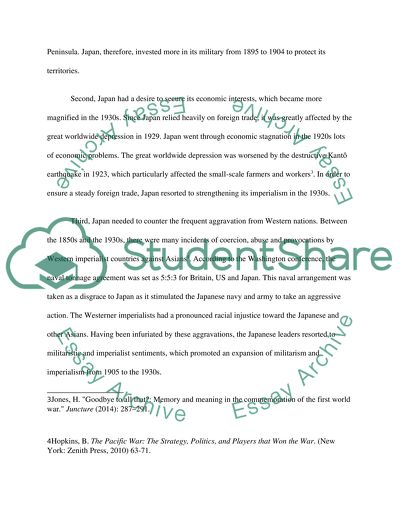Cite this document
(“The Pacific War: Japans militarism Essay Example | Topics and Well Written Essays - 1000 words”, n.d.)
The Pacific War: Japans militarism Essay Example | Topics and Well Written Essays - 1000 words. Retrieved from https://studentshare.org/history/1701722-the-pacific-war-japans-militarism
The Pacific War: Japans militarism Essay Example | Topics and Well Written Essays - 1000 words. Retrieved from https://studentshare.org/history/1701722-the-pacific-war-japans-militarism
(The Pacific War: Japans Militarism Essay Example | Topics and Well Written Essays - 1000 Words)
The Pacific War: Japans Militarism Essay Example | Topics and Well Written Essays - 1000 Words. https://studentshare.org/history/1701722-the-pacific-war-japans-militarism.
The Pacific War: Japans Militarism Essay Example | Topics and Well Written Essays - 1000 Words. https://studentshare.org/history/1701722-the-pacific-war-japans-militarism.
“The Pacific War: Japans Militarism Essay Example | Topics and Well Written Essays - 1000 Words”, n.d. https://studentshare.org/history/1701722-the-pacific-war-japans-militarism.


